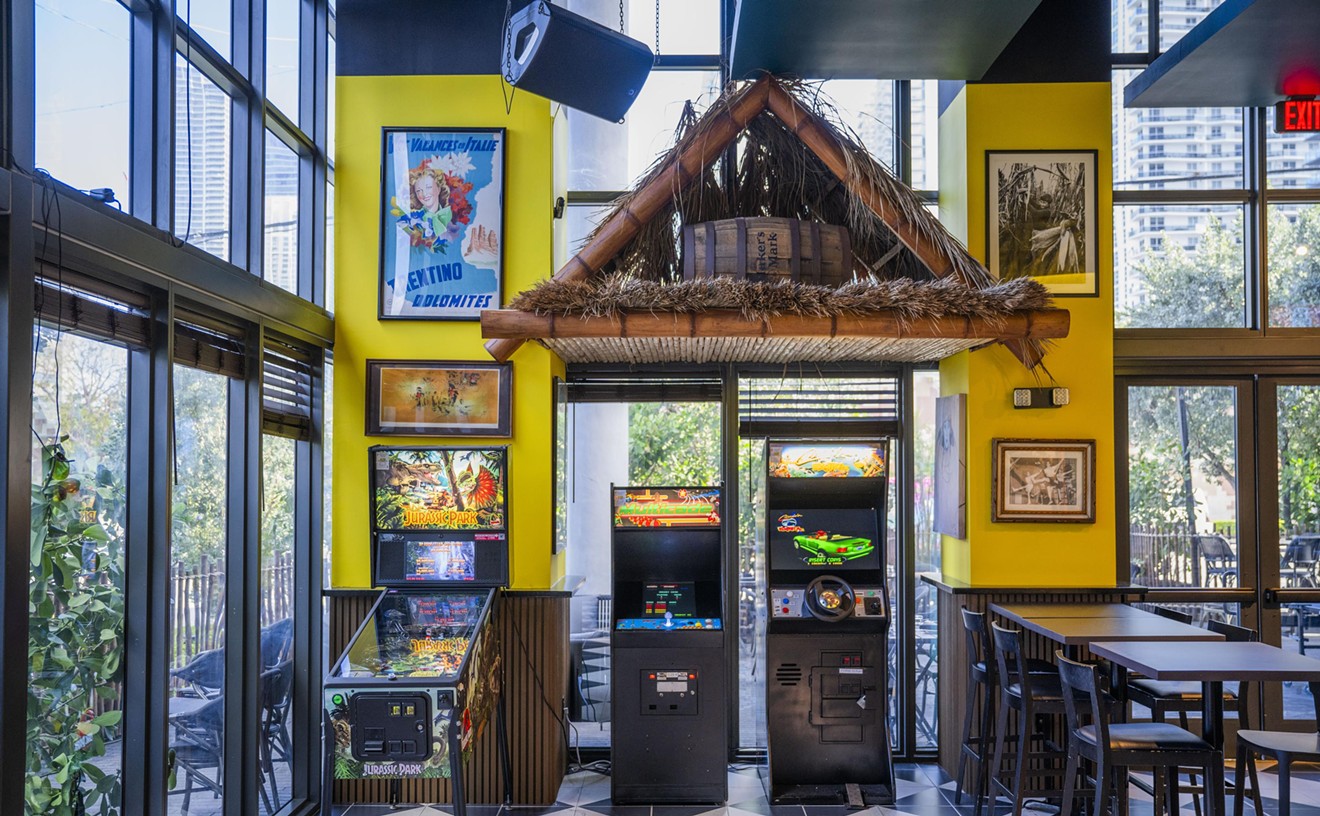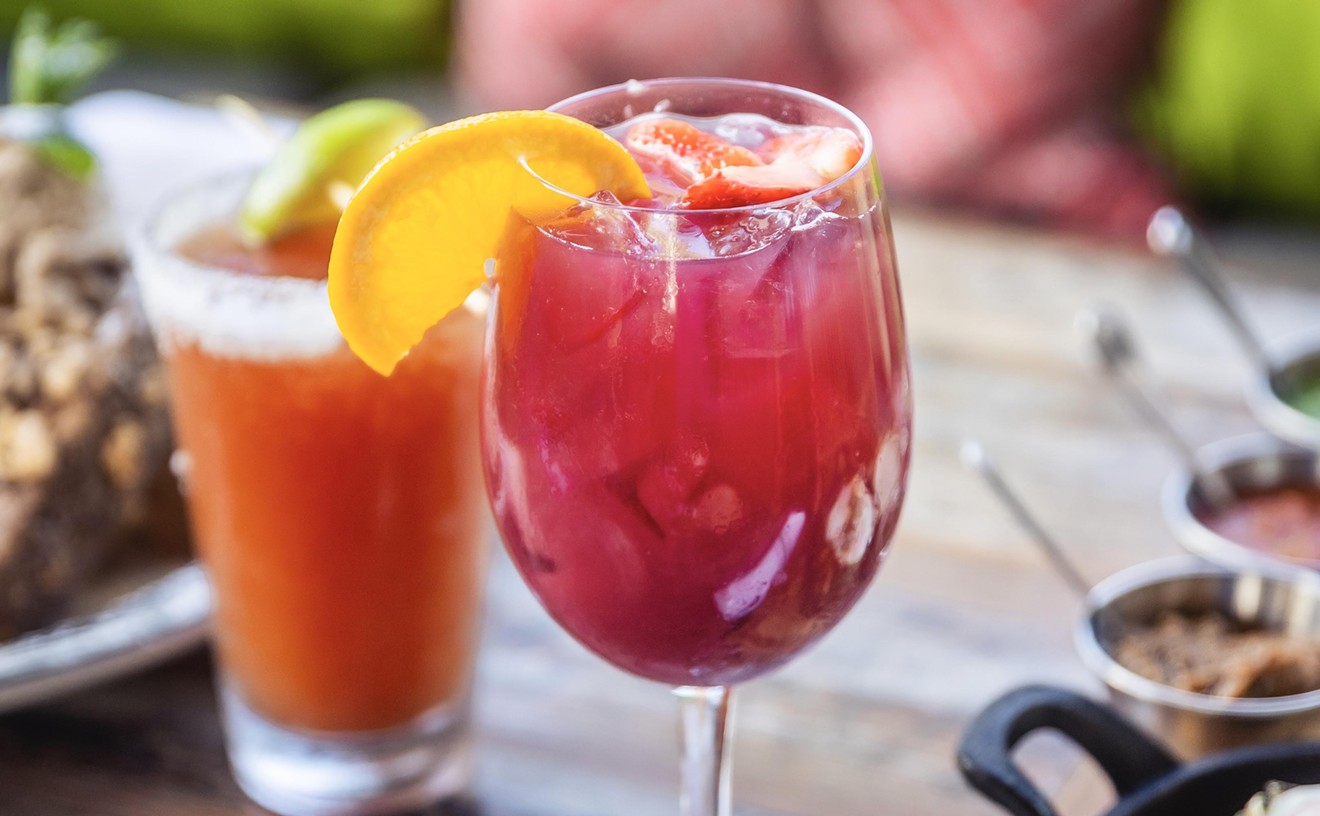For some, a church might be a strange place to seek a meal, yet on a recent Sunday night, as twilight cast a lavender glow across the sky, cars filled the parking lot of St. Matthew the Apostle Episcopal Church near South Miami. People emerged and wandered between red brick buildings, not quite sure what to expect or look for. Then, in the shadow of the church steeple, a glass door swung open and released a cheerful din. Inside a large white dining hall, more than 100 people were gathered around large tables set with white linen. Everyone was there for one thing: Hy Vong.
The beloved Vietnamese restaurant in Little Havana shuttered in 2015 after a landlord dispute and nearly four decades of business. For a while, owners Tung Nguyen and Katherine Manning bounced around town looking for a permanent, and then semipermanent, home before settling on this quiet church deep in the suburbs of Miami-Dade. Each month, the Hy Vong faithful snap up nearly all of the tickets in a clamor for a taste of Nguyen's pungent and plentiful homestyle cooking.
"Everybody here is family," Manning announced before the first dish was served. "We're not going to follow the menu in the order it's written. Tung and I are going to send dishes out as we like, and if you need more, just ask."
What followed was a nearly three-hour onslaught of classic Vietnamese dishes such as furiously spicy green papaya salad alongside tender, ginger-laced slices of beef knotted up with thick rice noodles and adorned with cilantro. Thin half-moons of beef tongue arrived in large bowls pooled with a thin ginger-and-beef broth flecked with fish-sauce funk.
Though they maintain a strong desire to keep feeding people, they know it can't go on forever.
tweet this
The Hy Vong pop-ups are the penultimate phase of Nguyen and Manning's lengthy career as icons in Miami's restaurant scene. For the past two years, customers who were regulars at the restaurant, some for decades, never miss an opportunity to seize the familiar flavors and comforting atmosphere that kept them coming back despite the cramped conditions and long waits. It's unclear how long the partners can keep this up. Both women are in their early 70s, and though they maintain a strong desire to continue feeding people, they know it can't go on forever.
"We're old already, and this is
Central to that book is the story of how, four decades ago, Manning and Nguyen — at the time a schoolteacher and a pregnant, widowed refugee — unbelievably found each other and built Hy Vong, whose name means "hope."
As U.S. forces pulled out of Saigon in 1975, Nguyen, then 28, was among the thousands fleeing the war-torn country. For the past couple of years, she'd been able to keep her family going by selling soup on the roads leading in and out of the city. With news that the Viet Cong were within striking distance of the city, she, like so many others, scrambled to board a fishing boat with nothing more than the clothes she wore and a small purse. They were adrift at sea for more than a week before they were discovered by a U.S. Navy boat. Most of the passengers perished. Nguyen stayed alive by drinking rainwater as it fell from the sky. She and other survivors were taken to Guam while the U.S. government tried to devise a plan for the refugees. Knowing nothing of America, she only said she wanted to go someplace warm.
At the time, Manning was finishing a degree at the University of Miami and already had several refugees living with her. She sheltered 14 in total during those years and couldn't refuse Nguyen, who arrived in South Florida six months pregnant.
"Tung started working as soon as she arrived," Manning said. "First at UM washing dishes, and later she worked at the Rusty Pelican washing dishes until the baby was born."
The years went on, and Manning found a job as a math teacher, while Nguyen spent her days at home raising her daughter, Phuonglien, who is now 42, holds degrees from Harvard and Cornell, and runs an artificial intelligence company. To make ends meet, Nguyen would cook the dishes of her home country and sell them on the weekends.
Before long, Manning and Nguyen found themselves overwhelmed by the number of eager people who came to the house every Saturday for the home-cooked meals. Despite having no money or experience, the two recruited a retired contractor friend to help them build out a small space on SW Eighth Street. When they opened the spot in 1980, they quickly learned that cooking in a restaurant, which soon filled as word spread, would be much different from selling pho and crisp pork-and-mushroom-flecked imperial rolls out of a house.
"Still, I felt so happy," Nguyen said. "It was very tough, but little by little, we learned, and I was OK and started to relax."
Over the next three decades, until it closed in 2015, the restaurant was the beacon and standard-bearer for Vietnamese cuisine in Miami.
At the monthly dinner in the church dining room, regulars were quick to guide newcomers on how to handle the lettuce sheaths and sprigs of basil and cilantro set at each place.
"That's not a salad," one woman told her neighbor. "Don't eat it yet — you have to wait for the food."
When the large bowls of tender pork ribs floating in a spicy fish sauce-filled broth arrived, she nodded, announcing it was time to
At the far end of the room sat a pho station where fatty slabs of brisket and flank meat were plunked into bowls with mung bean sprouts, rice noodles, and Thai basil before being inundated with a broth redolent of ginger and star anise. There was plenty left for seconds, and many obliged themselves.
The passing hours didn't slow the pace of food. There was curried salmon, rich with the aroma of lemongrass and more fish sauce, as well as rings of squid wrapped around a savory, saline combination of ground pork and crab.
Eventually, tables couldn't keep up with the onslaught, and small towers of bowls began rising around the dining room. That's just how Nguyen and Manning wanted it.
"We're going to keep cooking and improving our food for as long as we can," Manning later said. "Even when the book is published, depending on our health, we might do a pop-up here or there."













